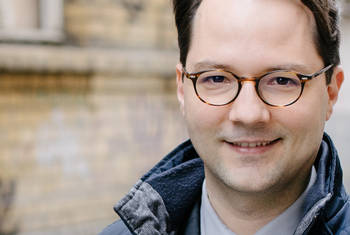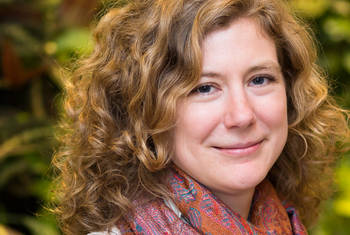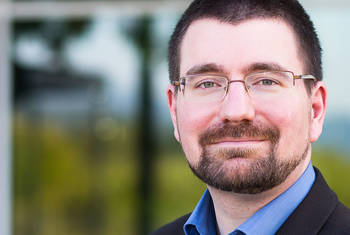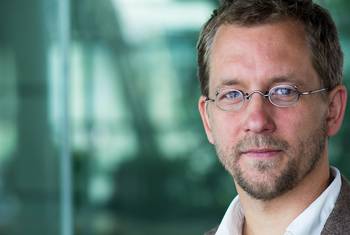Dominik Müller How Has the Islamic Party of Malaysia’s Stance Towards Popular Culture Evolved?
Dominik Müller is Head of a Research Group at the Max Planck Institute for Social Anthropology. Before this, he was affiliated with the Goethe University Frankfurt as postdoctoral researcher for the Cluster of Excellence ‘Formation of Normative Orders’. During this time, he also undertook research at the National University of Singapore, at the University of Oxford and at the University of Brunei Darussalam. In 2016, he was appointed as member of the Young Academy at the Academy of Science and Literature, Mainz. His PhD thesis on the rise of pop-Islamism in Malaysia received the Frobenius Society’s Research Award in 2012. Müller’s research interests include the question of Islam and the state and his area of research centres on South East Asia, especially Malaysia, Brunei and Singapore.
Area of Research
Anthropology of Religion, Normative Change, Popular Culture
since 2016
Head of Emmy Noether Research Group
Max Planck Institute for Social Anthropology
DFG Emmy Noether Junior Research Group „The Bureaucratization of Islam and its Socio-Legal Dimensions in Southeast Asia“
since 2017
Research Fellow
National University of Singapore
Centre for Asian Legal Studies
2013-2016
Post-Doctoral Research Fellow
Goethe University of Frankfurt (Goethe-Universität Frankfurt am Main)
Cluster of Excellence „Formation of Normative Orders“
2016
Stipendiary Visiting Research Fellow
National University of Singapore
Centre for Asian Legal Studies
2015
Senior Member (Visiting)
University of Oxford
St Antony’s College
2014
Post-Doctoral Fellow (Visiting)
University of Brunei Darussalam
Academy of Brunei Studies
2013
DAAD Post-Doctoral Fellow (Visiting)
Stanford University
Walter H. Shorenstein Asia-Pacific Research Center (APARC)
2012-2013
Research Associate
Goethe University of Frankfurt (Goethe-Universität Frankfurt am Main)
Cluster of Excellence „Formation of Normative Orders“
2008
Research Associate
Goethe University of Frankfurt (Goethe-Universität Frankfurt am Main)
Cluster of Excellence „Formation of Normative Orders“
2008-2012
PhD in Anthropology
Goethe University of Frankfurt (Goethe-Universität Frankfurt am Main)
Cluster of Excellence „Formation of Normative Orders“
2003-2008
MA in Anthropology
Goethe University of Frankfurt (Goethe-Universität Frankfurt am Main)
Philosophy and Law
- Palgrave Macmillan
- Asian Ethnicity (T&F)
- Ethos: Journal of the Society for Psychological Anthropology (AAA)
- The Pacific Review (T&F)
- Paideuma: Mitteilungen für Kulturkunde
- Max Planck Institute for Social Anthropology Working Paper Series
- Antonian Alumni Community, University of Oxford
- European Association for Southeast Asian Studies (EUROSEAS)
- Frobenius-Gesellschaft
- Socio-Legal Studies Association (SLSA)
- Association of Asian Studies (AAS), USA
- AAS Malaysia Singapore Brunei (MSB) Studies Group
- Deutsche Gesellschaft für Völkerkunde (DGV)
- European Association of Social Anthropologists (EASA)
Prizes
- Commendation, Young Scholar Competition 2014, Journal “Indonesia and the Malay World”(University of London, SOAS) (2015)
- Frobenius Society Research Award (Forschungsförderungspreis der Frobeniusgesellschaft) for PhD Dissertation (2012)
- Selected by President’s Office of Frankfurt University for Funding under Program “Nachwuchswissenschaftler/innen im Fokus“ (2012)
Fellowships
- Appointed as a Member of the Young Academy (Junge Akademie) at the Academy of Science and Literature, Mainz (2016-2020)
- Law and Social Change Visiting Fellowship, Islamic Legal Studies Program, Harvard Law School, Harvard University (2018)
- Stipendiary Visiting Research Fellowship, Centre for Asian Legal Studies, National University of Singapore (2016)
- DAAD Post-Doc Fellowship, Walter H. Shorenstein Asia-Pacific Research Center, Stanford University (2013)
- DFG Emmy Noether Programme (2016)
- Competitive Workshop Grant at Goethe-University Frankfurt (2015)
- Program “Nachwuchswissenschaftler/innen im Fokus“, Goethe-University Frankfurt (2012)
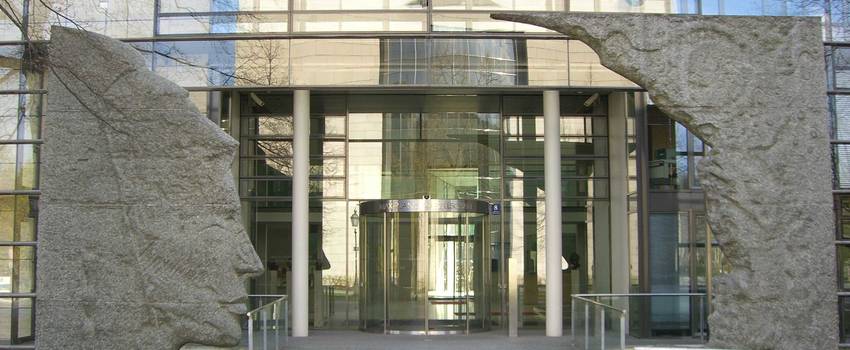 © Maximilian Dörrbecker
© Maximilian Dörrbecker
Max Planck Society
"The Max Planck Society is Germany's most successful research organization. Since its establishment in 1948, no fewer than 18 Nobel laureates have emerged from the ranks of its scientists, putting it on a par with the best and most prestigious research institutions worldwide. The more than 15,000 publications each year in internationally renowned scientific journals are proof of the outstanding research work conducted at Max Planck Institutes – and many of those articles are among the most-cited publications in the relevant field." (Source)
Institute
Max Planck Institute for Social Anthropology
"The Max Planck Institute for Social Anthropology is one of the world’s leading centres for research in socio-cultural anthropology. It was established in 1999 by Chris Hann and Günther Schlee, and moved to its permanent buildings on Advokatenweg 36 in Halle/Saale in 2001. Marie-Claire Foblets joined the Institute as its third Director in 2012. Common to all research projects at the Max Planck Institute is the comparative analysis of social change; it is primarily in this domain that its researchers contribute to anthropological theory, though many programmes also have applied significance and political topicality. Fieldwork is an essential part of almost all projects. More than 175 researchers work at the Institute, the great majority in one of its three Departments: ‘Law & Anthropology’ (Foblets); ‘Resilience and Transformation in Eurasia’ (Hann); ‘Integration and Conflict’ (Schlee). The Institute’s Library, the Research Coordination Unit, the IT Department and administrative staff assist the researchers in their work. The Institute has its own Guesthouse, and organises regular seminars and international conferences. It cooperates closely with anthropologists and other colleagues at the Martin Luther University, Halle-Wittenberg, and at the University of Leipzig" (Source)
Map
While doing anthropological fieldwork in Malaysia, DOMINIK MÜLLER noticed that the Islamic Party of Malaysia organizes events and activities that are frequently embellished with popular culture elements, such as bands playing on electric guitars. This seemed at odds with common Western assumptions that Islamic political movements tend to condemn popular culture as un-Islamic. Müller then investigated how the change of the party’s religious stance – a Sharia-framed stance that had still been adamant twenty years before – came about. He found that not only the Islamic Party has opened itself to new forms of modern pop culture but also these elements have been appropriated and reframed in an Islamic context to convey the political messages of the party. This ethnographic study shows that Islamist ideologies can be much more complex and flexible than many people would normally assume.
LT Video Publication DOI: https://doi.org/10.21036/LTPUB10426
Islamic Politics and Popular Culture in Malaysia: Negotiating Normative Change Between Shariah Law and Electric Guitars
- Dominik M. Müller
- Indonesia and the Malay World
- Published in 2015


